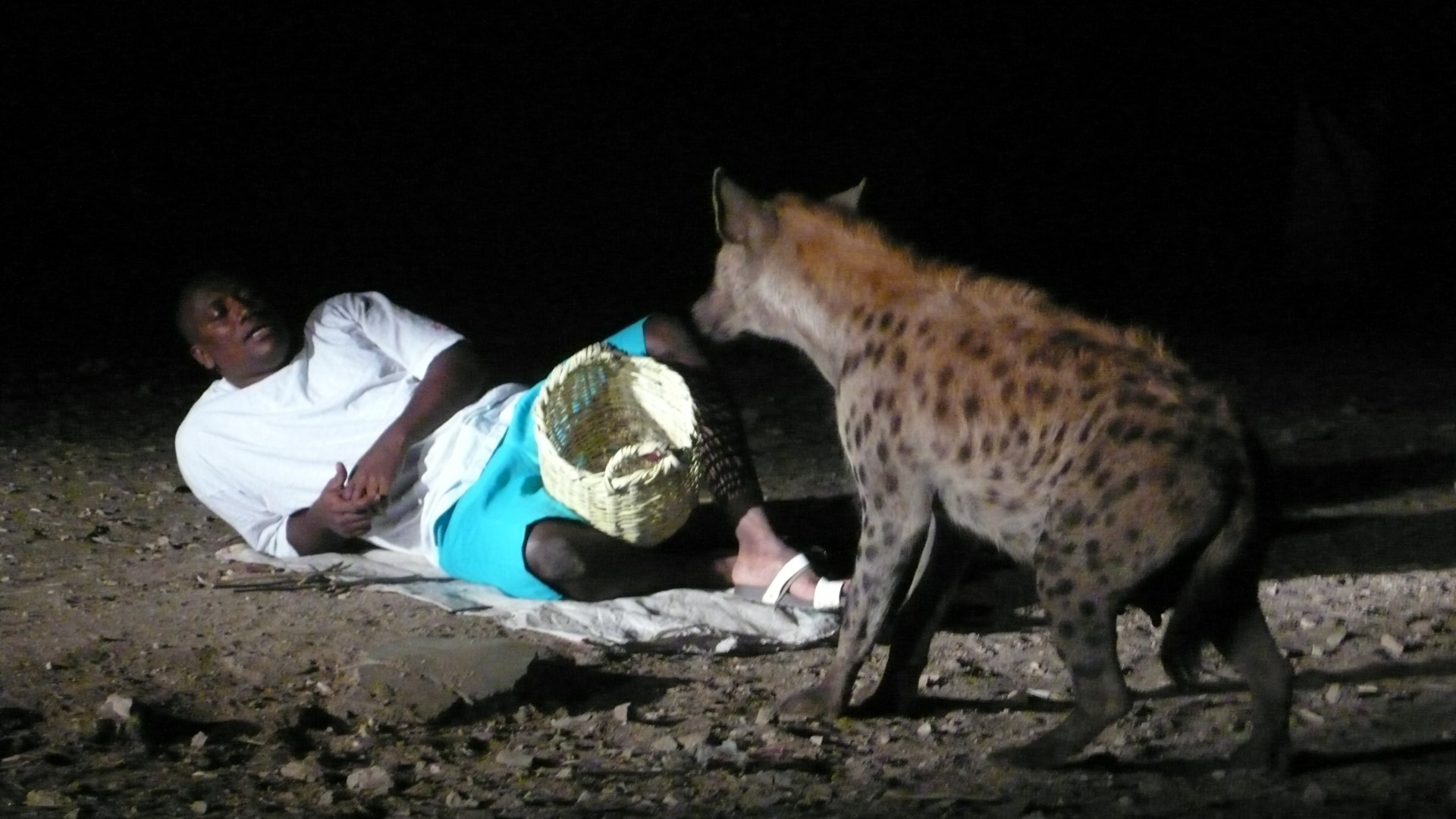
The Hyena Man
2012, Harar, Addis Ababa
ETHIOPIAAFRICAANTHROPOLOGYWILDLIFE
I returned to Addis Ababa from Lalibela, well happy with my time in Ethiopia and planning only to rest a day before boarding my flight to Cairo for the next leg of my trip, in Egypt. In fact there was much more I could have done in Ethiopia, in particular I was sorry to miss the tribal regions in the south, but I had decided that it would be more time and money than I wanted to spend. I had also gotten it into my head that I should get to the Middle East before spring turned to summer. I came back to the hotel I'd stayed in when I first arrived. There, over breakfast in the morning, I met another traveller. She was a budding photographer from Norway, travelling with a friend from home. That evening we were in a café together when I read the email informing me that my flight to Cairo had been cancelled. I can't remember now whether it was the airline that cancelled it, or if I did it myself.
The next evening we went for drinks in the city with a group from the hotel. I don't remember so much about the nightlife in Addis. For a while we were somewhere overpriced and highfalutin because of some international executive type who had taken a shine to my friend's companion. Later we gravitated away to a friendly bar with afrobeat music, and we had beers with a group from across the continent; a girl I think from Zambia or Botswana, an Afrikaner guy from South Africa, a Libyan lad and an Ethiopian from our hotel who said people called him Italian because of his big nose. I remember paying the taxi driver his faranji tax after a half-hearted argument, and when we got back, her playing Cunninlynguists' "The Gates" on her iPhone, something that was still a novelty to me in 2012, strange as that is to say now. Somewhere between then and breakfast the next morning, the idea had formed of one more expedition in Ethiopia. She and I would go together to Harar, a walled city in the country's Muslim east. The bus ride took us out into arid country, and I remember we passed baboons, hunched and hiking, human-like along the road. Her feet got cold, and I was able to give her the warm socks that I had packed with the notion of going on all the way from there to colder climes, many miles and months away.
We must have been just off the bus in Harar when we met Abdul. He was a tall, laid back local lad around our age, and he pitched us a walking tour for what seemed like a reasonable price. We decided to go along with him. My companion poked fun at the quick pace I had to maintain to keep up with our guide's long, loping strides. We walked around the old own, seeing the ancient, undulating city walls and gates, multi-coloured markets full of merchants and their wares, brightly painted mosques and shrines, and a small museum where some local anthropologist had collected black and white photos of the Hararis as they had once presented themselves, loose robes and shocks of curly hair in place of the mass produced t-shirts and more restrained styles of modern life.
Later, Abdul introduced us to his friend Tigist. She showed us around other nooks and crannies and finally invited us to her home, where we drank tea, smoked nargilah and chewed khat leaves. The leaves are supposed to be a mild stimulant, but for me they weren't long in my stomach. I remember Tigist's mother kindly dabbing my face with a warm wet cloth to sooth me after I'd gotten sick. Whether it was the khat or something else, you would never know.
Harar is unique in Ethiopia and provides a glimpse into the Horn of Africa, a troubled region generally difficult for foreigners to enter. It was an affecting experience just to move through the busy atmosphere of that market city, where people bought and sold real things to one another, not yet souvenirs to tourists, and where I was met as something like a strange but not unknown animal, given bashful smiles by the majority and approached only by the bravest few, most of them children.
For centuries Harar has connected Ethiopia with the rest of the horn of Africa and the Somali coast. It's a distinctly Muslim city, with a multitude of mosques. In fact, apparently some consider it the fourth holiest city in Islam, and call it the City of Saints. This is not to say, however, that its culture simply comes from somewhere else; I could see already even in the shape of the mosques and the city walls a style all Harar's own, an African Islam and an African urban world.
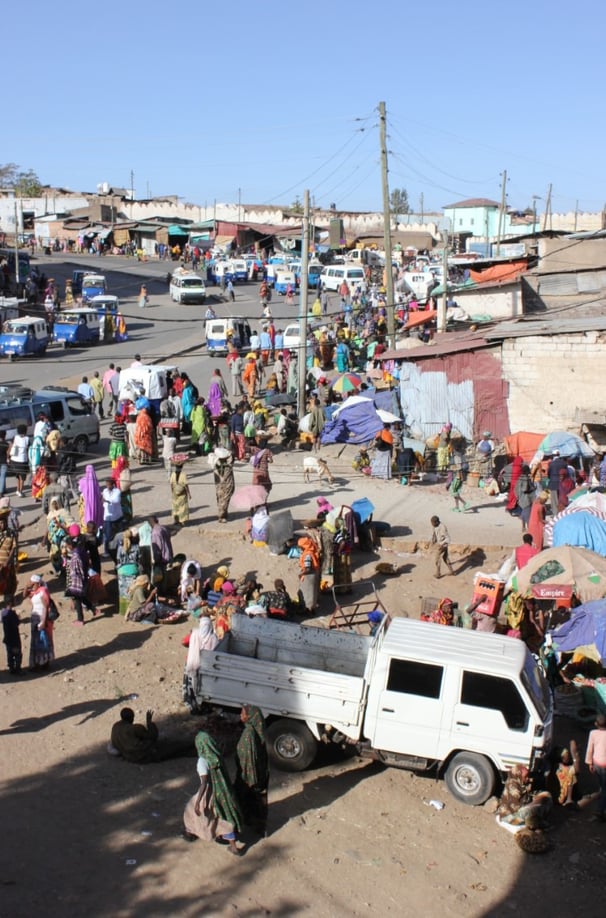

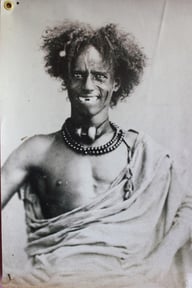
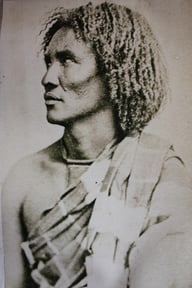
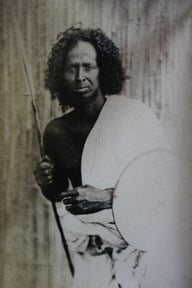



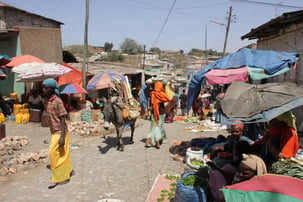
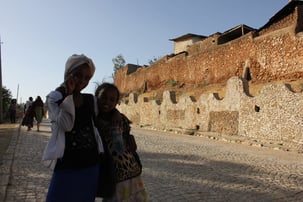


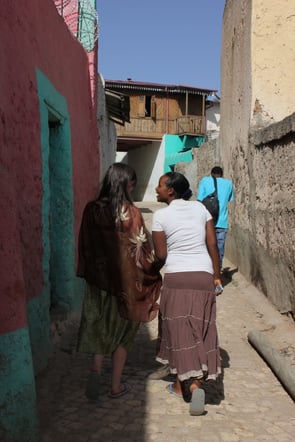
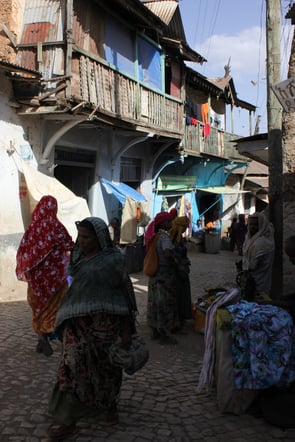


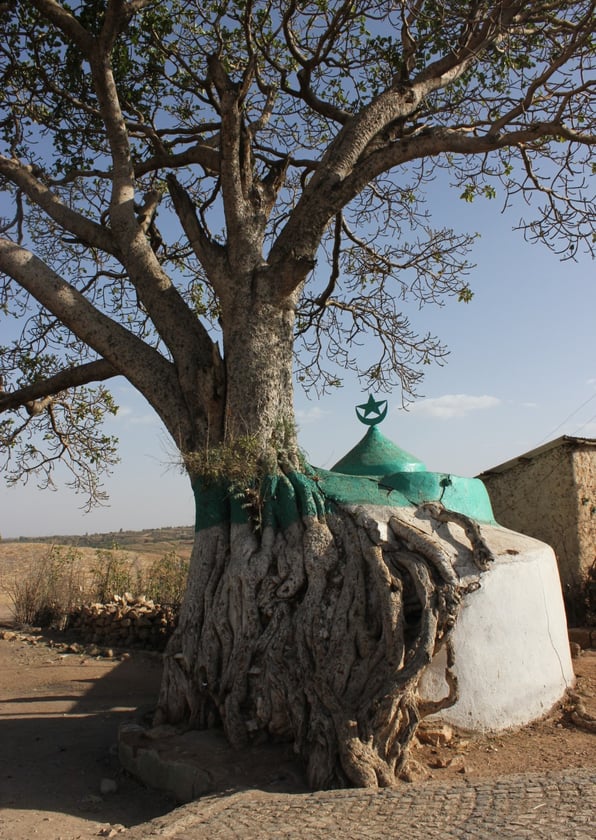

The hyena man made himself comfortable. Kneeling, he hung a strip of meat from a stick and held it out. The bravest hyena darted into his circle and took the gift with a flick of her jaws, and then darted back out into the relative darkness. The hyena man repeated this exchange once or twice, then reclined on his blanket and propped an open basket of food between his knees. Dutifully another hyena came and ate. Now it was time for audience participation. The hyena man beckoned to us, and oddly enough without hesitation, I jumped to my feet and went to join him.
A reminder of exactly which continent Harar belongs to also comes in the form of some remarkable animal guests. At night the city has long been visited by hyenas, scavenging for food. Somewhere along the way a tradition developed of welcoming them with porridge and meat, at first one night a year, but now whenever there is an audience for it. One night close to the end of our stay, we came to the appointed place and paid the hyena man his toll. In a small clearing where streets intersect outside the old walls, he laid down a blanket to sit on and set out his baskets of food. Soon, our guests arrived. Under the light of the moon they came slinking and skulking, now emerging from their alleys, now circling cautiously. I had never thought of hyenas as beautiful animals, until that moment. I remembered that they are in fact a kind of dog, though wild. They were silent, with none of the infamous cackling, and in spite of their bulk they moved carefully, deliberately, gracefully.
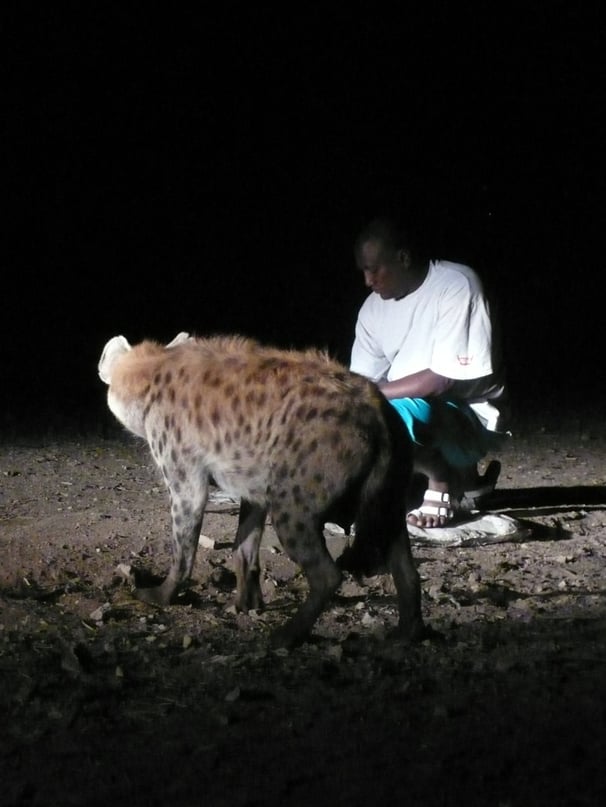

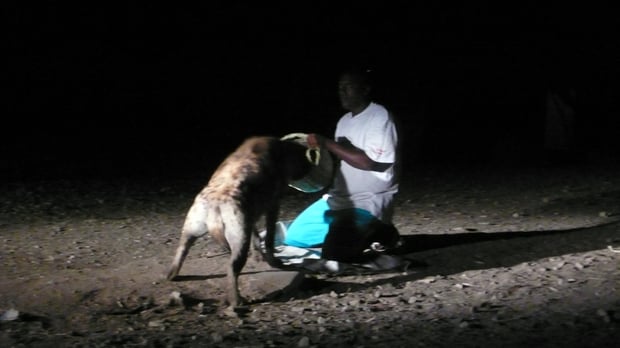

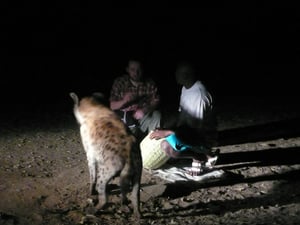
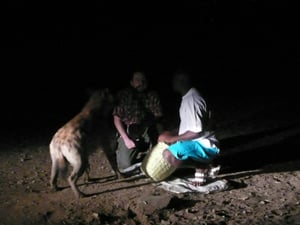


He gave me a stick and draped another strip of meat on it. I held it out, and through an atmosphere thick with attention, one of those big beasts approached me at a quick trot. There is something special about a close encounter with any wild animal. The impression still vivid in my mind is a beautiful contradiction of power and poise. As she approached me to take the meat I saw how big she was; if the circumstances had not been friendly she could have made short work of me. But there was no hostility in her clever eyes, and she simply snatched the meat and swiftly withdrew to her companions. Then the hyena man showed us one more trick. He draped more meat on a stick, and this time held the other end in his teeth. A hyena came and took it. He turned to me and I understood that I would do the same. I draped the meat on the stick, and held it with my teeth. A hyena came and took it.
The Gist: Harar (2012)
TRAVEL WARNING: Civil war struck Ethiopia beginning in 2018. Irish government travel advice can be found here.
ARRIVED: I travelled by bus (booked in person) from Addis Ababa.
SLEPT: I found a cheap hotel room on arrival.
DID: I went on an informal guided tour of the old city, and fed the hyenas at night.
LEFT: I returned to Addis Ababa by bus (booked in person), and from there flew to Cairo with Ethiopian Airlines.

